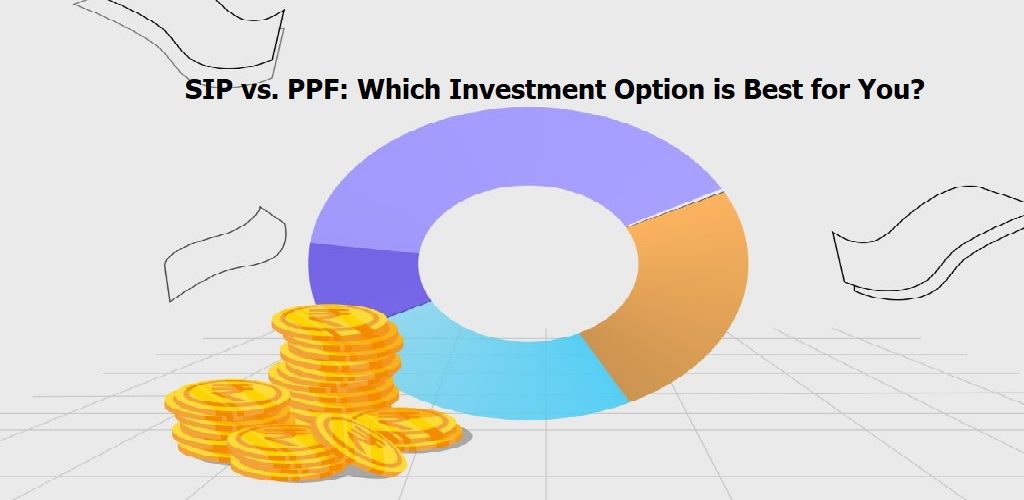Have you ever wondered why so many people are turning to real estate as an investment? Real estate has proven to be a reliable way to keep up with inflation and offers excellent income opportunities. It serves as a great option for diversifying investments and exploring new avenues outside of the stock market.
While some people invest in real estate as their main source of income, others may prefer to use it for passive income. Both groups aim to benefit financially from real estate, but they take very different paths to get there. This difference is what we refer to as direct and indirect investments. As you delve into the world of property investment, it’s important to grasp the key differences between these two types of real estate investment to make a wise decision.
What is Direct Real Estate Investment?
Direct real estate investment simply means purchasing a specific property, such as an apartment, shopping mall, or office building. When you invest directly in real estate, you gain ownership and control over that property. Thus, it means you have a significant stake in a tangible asset, whether it’s residential (like a home or apartment) or commercial (like a retail space or office). Direct ownership allows you to make decisions about the property, including how it is managed and when it is sold.
Investing directly in real estate comes with several financial benefits. One of the primary advantages is rental income, which can provide a steady cash flow. Additionally, the value of the property may increase over time, leading to price appreciation when you decide to sell. There are also potential tax advantages, such as deductions for mortgage interest and property taxes, which can further enhance your overall returns.
What are the Different Types of Direct Real Estate Investing?
Let’s take a look at the types of direct real estate investing.
- Residential Property Investment
Investing in residential properties is a popular way to get involved in direct real estate. This involves buying single-family homes, duplexes, or multi-family buildings to rent them out or sell them for a profit. Investors can benefit from regular rental income and the potential increase in property value over time.
- Commercial Real Estate Investment
Commercial real estate investment focuses on properties used for business activities, such as office buildings, retail spaces, and industrial complexes. Investors earn money by leasing these properties to businesses, often enjoying higher returns compared to residential investments due to longer lease agreements and higher rental rates.
- Land Investment
Buying undeveloped land is another direct real estate investment option. Investors purchase land with the idea of developing it in the future or selling it later at a profit. This can be a rewarding investment if the land appreciates in value or is sold to developers for new commercial or residential projects.
- Vacation Rentals and Short-Term Leases
Investing in vacation rentals or properties that can be rented out short-term has become increasingly popular, especially with platforms like Airbnb and VRBO. This strategy allows investors to take advantage of the high demand for short-term accommodations, which may often lead to greater rental income than traditional long-term rentals.
What are the Benefits of Investing In Direct Real Estate?
Here are the salient benefits of choosing direct real estate for investment purposes.
- Potential for Positive Cash Flow
One of the biggest advantages of investing in direct real estate is the opportunity to generate positive cash flow. When you purchase physical properties, such as rental homes or apartment buildings, they can provide you with a steady stream of income. This means that, after covering your mortgage and other expenses, you can regularly pocket the rent payments, contributing to your financial stability and allowing you to reinvest or save for future needs.
- Property Appreciation
Another significant benefit of real estate investing is the potential for property appreciation. Just like in the stock market, real estate prices can fluctuate based on various factors, including market demand and economic conditions. Over time, however, properties generally tend to increase in value, especially if they are well-maintained or located in desirable areas. This appreciation can be a powerful asset, which may allow you to sell your rental properties at a much higher price than what you initially paid, significantly boosting your overall return on investment.
- Tax Benefits
Investing in real estate also comes with various tax benefits that can help you save money. For example, you can deduct certain expenses related to the maintenance and management of your property, such as repairs, property management fees, and insurance costs. Additionally, you can take advantage of depreciation, which allows you to deduct a portion of your property’s value each year to account for wear and tear. These deductions can significantly reduce your taxable income, making real estate an attractive investment from a tax perspective.
- Greater Control Over Investments
One of the most appealing aspects of direct real estate investment is the level of control it offers. Unlike other investments, such as stocks or mutual funds, where you rely on market fluctuations and the decisions of corporate leaders, real estate allows you to make choices that directly impact your investment. You can select properties that align with your investment goals, whether it’s based on location, property type, or rental rates.
What is Indirect Real Estate Investment?
In layman’s language, Indirect real estate investment offers a way for individuals to engage in the real estate market without the need to directly own or manage physical properties. This investment strategy is especially appealing to those who want to enjoy the benefits of real estate, such as generating income and experiencing property appreciation, but would rather steer clear of the challenges and responsibilities that come with property management.
In indirect real estate investing, individuals typically invest in real estate through vehicles such as Real Estate Investment Trusts (REITs), real estate mutual funds, or limited partnerships. These options allow investors to pool their money with others to fund real estate projects, thereby spreading out risk and minimizing the need for hands-on involvement.
What are the types of Indirect Real Estate Investing?
Let’s take a look at the types of indirect real estate investing,
- Real Estate Investment Trusts (REITs)
One of the most popular ways to invest indirectly in real estate is through Real Estate Investment Trusts or REITs. These are companies that own, manage, or invest in properties that generate income. Some REITs focus on residential properties like apartments, while others specialize in commercial spaces like offices or shopping centers. Investors can buy shares of REITs on major stock exchanges, which makes it simple to add real estate to their investment portfolio without needing a large amount of money.
- Real Estate Mutual Funds
Another option is real estate mutual funds. Similar to regular mutual funds that invest in stocks, real estate mutual funds pool money from many investors to buy a diverse range of real estate assets. These funds are managed by professionals who invest in REITs, real estate stocks, and other related securities. Furthermore, this approach allows investors to get broad exposure to the real estate market without having to pick individual properties themselves.
- Real Estate Crowdfunding
Real estate crowdfunding is a newer method that lets people invest indirectly in real estate projects. Through online platforms, investors can pool their money together to fund specific projects, such as new commercial buildings or residential developments. This option often has lower minimum investment amounts, which makes it accessible for more people to participate in real estate investments.
- Real Estate Exchange-Traded Funds (ETFs)
Real estate ETFs are another way to invest indirectly in real estate. These funds are traded on major stock exchanges and track the performance of real estate indices or specific sectors of the real estate market. By investing in a real estate ETF, individuals can gain exposure to a variety of real estate assets while enjoying the flexibility and ease of buying and selling shares like regular stocks.
- Peer-to-Peer Lending (P2P) or Crowdlending
Peer-to-peer lending, or P2P lending, is another indirect investment option. This method connects individuals who need loans with investors who want to lend money directly, cutting out traditional financial institutions. P2P lending can be an alternative way for investors to earn a better return on their savings, as they can lend money for real estate projects and receive interest payments in return.
What are the Pros Of Indirect Real Estate Investment?
Here are the benefits of indirect real estate investment.
- Low Barrier to Entry
One of the biggest advantages of indirect real estate investment is that you can get started with little or no money. Many people wonder if it’s possible to invest in real estate without a significant upfront investment, and the answer is yes! With indirect investments, like Real Estate Investment Trusts (REITs) or mutual funds, you don’t need to buy or manage properties yourself. This makes it a very low-cost way to enter the real estate market. You can start investing with just a small amount, making it accessible to more people.
- Higher-than-Average Dividends
Another benefit of indirect real estate investing is the potential for higher-than-average dividends. In fact, many indirect investment vehicles are required by law to pay out at least 90% of their taxable income to shareholders. This often translates to dividend yields around 5% or more, which can be quite appealing. Additionally, as the value of the properties in these investments appreciates over time, your investment can grow significantly, providing you with both income and capital gains.
- Liquidity
Liquidity is another significant advantage of indirect real estate investments. Unlike physical properties that can take time to sell, shares in REITs or mutual funds can be bought and sold easily on stock exchanges. This means that if you ever need cash quickly, you can convert your investment into cash much faster. This flexibility can be very helpful in emergencies or when you need to access your funds without the hassle of dealing with property sales.
Differences Between Direct vs. Indirect Real Estate Investment
Let;s take a look at the comparison between direct and indirect real estate investment.
| Parameters | Direct Real Estate Investment | Indirect Real Estate Investment |
| Ideal for | Direct real estate investment is ideal for those who want complete control over their investments. If you’re willing to take on the responsibilities of managing a property, such as handling tenants and maintenance issues, this approach might be suitable for you. | On the other hand, if you prefer a more hands-off approach and want to avoid the hassles of property management, indirect investments through options like REITs (Real Estate Investment Trusts) or mutual funds are a more attractive option. |
| Capital & Risk | Direct investments typically require a significant amount of capital upfront and come with higher risks. However, they also have the potential for substantial returns and offer various tax benefits, making them appealing for investors who can manage those risks. | Indirect investments, in contrast, usually require less capital, making them more accessible to a broader range of investors. They also provide diversification benefits, which can help reduce the overall risk in your investment portfolio. By spreading your money across different assets, you minimize the impact of any one investment performing poorly. |
| Tax Implications | Investors in direct real estate can take advantage of numerous tax incentives. These include deductions on mortgage interest, property taxes, and depreciation, which can significantly lower your tax liability and enhance overall returns. | However, indirect investments may not offer the same level of tax advantages. For example, dividends received from REITs are generally taxed as ordinary income, which might not provide the same tax benefits as owning property directly. This is an important consideration for tax-conscious investors. |
| Liquidity & Accessibility | Direct real estate investments are typically less liquid, meaning selling a property and accessing your cash can take time. This lack of liquidity can be a disadvantage if you need to free up funds for other uses quickly. | In contrast, REITs and real estate mutual funds can be bought and sold like stocks on major exchanges, providing much easier access to your capital. This liquidity can be beneficial in times of financial need or when you want to adjust your investment strategy. |
| Control | With direct real estate investments, you have full control over your properties and the decisions made regarding them. However, this also means you bear the responsibility for everything from tenant selection to property maintenance. | Indirect investments, however, are typically passive, meaning professionals manage them. While you may not have direct control over specific investment decisions, you benefit from the expertise of those managing the fund, which may allow you to enjoy the benefits of real estate investing without the associated management duties. |
Frequently Asked Questions
The frequently asked questions about direct vs. indirect real estate investment are listed below.
The main difference is how you own and manage the investment. With direct real estate investment, you buy physical properties yourself, which means you have full control and are responsible for managing everything, like repairs and finding tenants. In contrast, indirect real estate investment lets you invest in REITs or mutual funds. Here, you don’t own the properties directly and can take a more hands-off approach.
For beginners, indirect real estate investment is usually a better choice. It allows new investors to get into real estate without the headaches of managing properties or needing a lot of money upfront. By investing in REITs or real estate mutual funds, beginners can still participate in the real estate market while benefiting from the experience of professional managers and lower investment amounts.
Yes, there are different tax benefits for each type. Direct real estate investors can enjoy various tax deductions, such as mortgage interest, property taxes, and depreciation, which can lower their taxable income. On the other hand, indirect investments, like REITs, don’t usually offer the same tax advantages; dividends from REITs are generally taxed as regular income, which might not be as beneficial.
No, accessing your money in direct real estate investments can be difficult. Selling a property takes time, so it might not be quick if you need cash fast. In comparison, indirect investments like REITs and real estate mutual funds can be bought and sold easily on stock exchanges, giving you quicker access to your money.
Both direct and indirect real estate investments can provide good returns, but they do so in different ways. Direct investments might offer higher returns through property value increases and rental income if managed properly, but they also carry higher risks and need more money to start. Indirect investments may offer lower returns, but they help spread out risk by pooling money with other investors.







